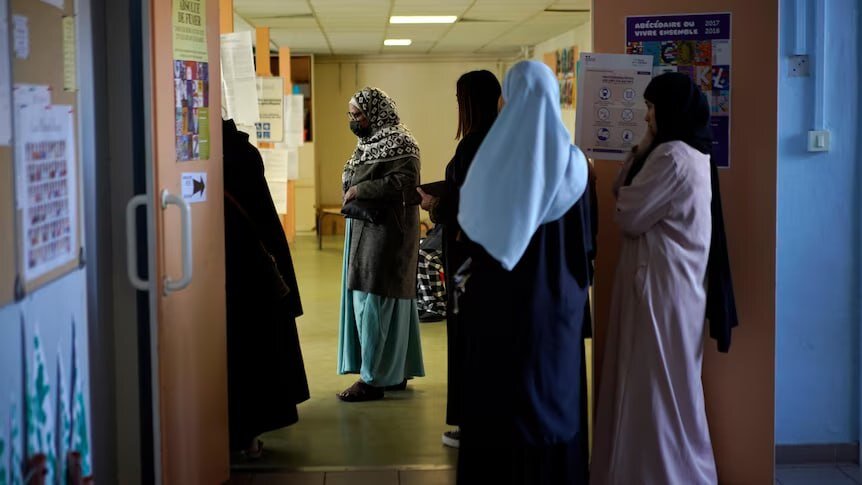INSUBCONTINENT EXCLUSIVE:
TEHRAN- Children in French schools will no longer be allowed to wear the Abaya, a long loose-fitting dress worn by Muslim women.The
Education Minister, Gabriel Attal, said that the style of the long, flowing dresses worn by some Muslim women, would no longer be allowed
religious symbols in schools that have mainly impacted the country's Muslim community.In 2004, France banned Muslim female students from
wearing their headscarves at schools
And in 2010, France banned full-face veils in public, drawing the anger of the five million-strong French Muslim community living in the
character" even if it is not an explicitly religious symbol.Ndiaye said he was against banning the Abaya, telling the Senate, "The Abaya is
not easy to define, legally..
item of clothing is not a religious sign in itself," the group said in a statement in June."You only have to travel through Muslim-majority
countries to realise that the citizens of these countries, of all faiths, are indistinguishable based on the clothes they wear," it
Clementine Autain, an MP from the leftist Insoumise party, who criticized what she called the "clothes police" and a move "characteristic of
an obsessional rejection of Muslims".Some academics agreed the move could be counterproductive, all the more as it touched on clothing they
said was worn for identity rather than religion."It's going to hurt Muslims in general
They will, once again, feel stigmatized," said sociologist Agnes De Feo
banning the Abaya is more than just policing people's bodies but essentially degrading them, arguing that whenever you limit somebody's
ability on what they can wear in accordance to their faith, it's a form of degradation, belittlement and keeps them under the control of
the state.They say what the Abaya or hijab represents is a form of power, and that is viewed as a threat to the government of French
It colonized the Muslim states Algeria, Morrocco, and Tunisia in North Africa
It committed numerous atrocities during colonialism.Many Algerians, Moroccans and Tunisians who immigrated to France and are citizens of the
country today complain that there is a lack of respect toward them and a lack of understanding or sympathy by French authorities toward
overdue.Sophie Venetitay, from the SNES-FSU teachers' union, said it was important to focus on dialogue with pupils and families to ensure
school teachers in France attended nationwide strikes earlier this year
In some schools, the rate was as high as 80%, and some schools were closed in protest against Macron's pension reform, which has seen a
enforce the ban on Abayas in classrooms, Attal said 14,000 educational personnel in leadership positions would be trained by the end of this
year, and 300,000 personnel would be trained by 2025.The ban by Attal, who is close to President Macron, has certainly triggered a fresh
government to divert attention, both on domestic and foreign front, and put out another announcement that targets Muslims and their

